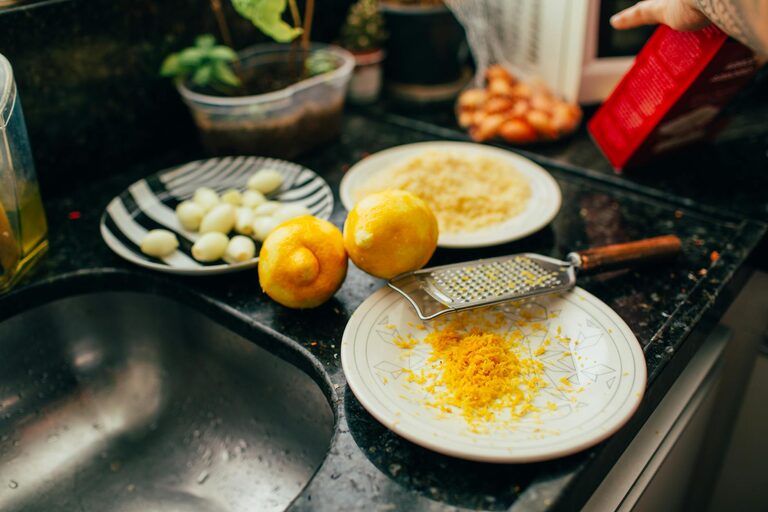Making dinner is often the highlight of the day, but the cleanup afterward can feel like a daunting task. If you find yourself dreading those piles of dishes, greasy pots, and sticky counters, you’re not alone. Fortunately, there are plenty of smart and simple ways to make dinner cleanup faster and less stressful. In this post, we’ll explore practical ideas to help you enjoy both your meal and the moments that follow.
Why Cleanup Can Feel Overwhelming
Cleanup after dinner involves several steps: washing dishes, wiping surfaces, storing leftovers, and taking out the trash. When done all at once after a big meal, it can quickly become overwhelming. Additionally, clutter from prepping and distractions during cooking sometimes leaves you with extra mess.
By organizing your approach and prepping in small ways, you can reduce the burden and even make cleanup a team effort.
1. Plan Ahead During Meal Prep
Use Fewer Dishes
One of the easiest ways to reduce cleanup is by limiting the number of dishes you use. Think about meals that rely on one-pan recipes, sheet trays, or slow cookers where you can cook and serve from the same dish.
For example, a stir-fry can be made in a single skillet, while roasting vegetables on a sheet pan means fewer pots to wash. The fewer pots and pans you use, the less cleanup afterward.
Prep Ingredients on a Cutting Board Near the Sink
Setting up your cutting board close to the sink makes it easier to rinse vegetables or wash your hands during prep, keeping your work area clean. Using one designated space also prevents stray bits of food spreading across countertops.
Soak Dirty Pans Immediately
As soon as you finish cooking, fill pots and pans that need scrubbing with warm, soapy water and let them soak. This softens stuck-on food and makes washing them faster and easier later.
2. Clean While You Cook
Cleaning as you go is a game changer. Instead of letting clutter build up, spend a few minutes during cooking to wash utensils, wipe spills, or load the dishwasher.
Wash Cutting Boards and Knives Between Tasks
If you’re chopping multiple ingredients, rinse or wash your cutting board and knives in between to keep the workspace tidy and reduce prep mess.
Wipe Countertops Frequently
Use a damp cloth or sponge to clean up small spills and crumbs right away. This habit prevents grease or food from hardening, which takes more effort to clean later.
Use a Bowl for Scraps
Keep a bowl nearby for vegetable peelings or other scraps to simplify disposal and avoid running back and forth to the trash.
3. Use Helpful Tools and Products
Invest in a Good Dishwasher
If space and budget allow, a dishwasher saves time and energy. Scrape off food and place dishes directly inside as you finish using them. Running the dishwasher overnight means clean dishes ready the next day.
Use Liner Papers on Baking Sheets
Non-stick parchment paper or silicone mats help keep pans clean. Instead of scrubbing baking sheets, just toss or wash the liner.
Use Disposable or Reusable Containers
When serving food, use reusable storage containers that are easy to stack and seal. This prevents leaving extra bowls or plates around, and storing leftovers becomes less cumbersome.
4. Make Cleanup a Team Activity
Sharing responsibilities can speed up the cleanup process and make it more enjoyable.
Assign Roles Before Dinner
Decide who will wash dishes, dry and put them away, wipe tables, or take out the trash. Clear roles help avoid confusion and ensure everything gets done.
Involve Kids
Age-appropriate tasks like clearing plates, stacking dishes, or wiping surfaces can be fun for kids and teach them responsibility.
5. Organize Your Kitchen Space
A well-organized kitchen supports easier cleanup.
Keep Cleaning Supplies Handy
Store dish soap, sponges, towels, and surface cleaners where you can reach them quickly. This reduces delays when wiping or washing.
Declutter Countertops
Limit items on counters to essentials so wiping down surfaces is quick and effective.
Use Pull-Out Trash and Recycling Bins
Easy access to trash bins encourages immediate disposal of waste and scraps during cooking and cleanup.
6. Establish a Post-Dinner Routine
Creating a habit around cleanup helps ensure it gets done consistently.
Clear the Table Right After Eating
Encourage clearing plates and utensils once the meal ends to prevent leftover mess.
Load the Dishwasher or Wash Dishes Promptly
Don’t let dishes pile up. Prompt washing keeps the kitchen neat and reduces odors.
Wipe Down Surfaces and Sweep Floors
A quick wipe and sweep after dinner prevents buildup and keeps your kitchen looking fresh.
Bonus Tips for Quick Cleanup
– Use a splatter guard when frying to reduce grease on the stove.
– Rinse plates and cookware before stacking or putting into the dishwasher.
– Store pots and pans so they’re easily accessible and do not pile up.
– Use microfiber cloths for quick, streak-free wiping.
—
By incorporating some or all of these ideas, you’ll find dinner cleanup becomes a more manageable, even pleasant part of your routine. Not only will your kitchen look better, but you’ll also have more time to relax after your meal. Happy cooking—and cleaning!



